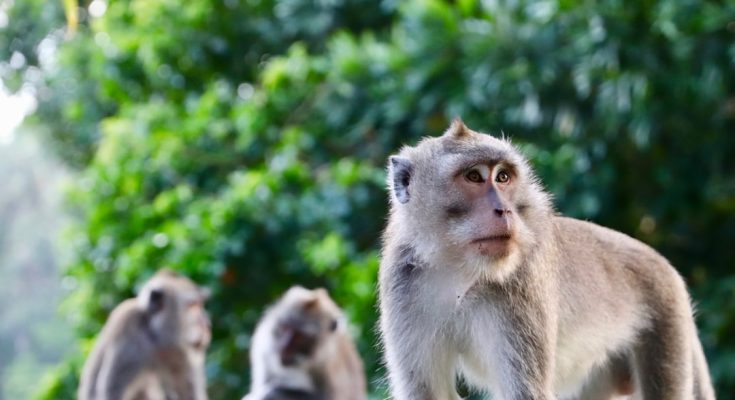Spider monkeys are a fascinating species of primate known for their long, slender limbs and prehensile tails. They are highly intelligent and social animals, often living in large groups in the wild. Before considering purchasing a spider monkey as a pet, it’s important to understand the unique needs and characteristics of these animals. Spider monkeys require a significant amount of space to move and climb, as well as mental stimulation to keep them engaged and healthy. They are also highly social creatures and require a great deal of interaction and companionship to thrive. Additionally, spider monkeys have specific dietary needs that must be met in order to ensure their health and well-being. It’s crucial for potential owners to thoroughly research and understand the responsibilities and commitments involved in caring for a spider monkey before making the decision to bring one into their home.
Spider monkeys are not domesticated animals and have specific needs that must be met in order for them to live happy and healthy lives. They require a large, secure enclosure that allows for plenty of climbing and swinging opportunities. Spider monkeys are highly intelligent and need mental stimulation to prevent boredom and frustration. They also require a diet that closely mimics what they would eat in the wild, including a variety of fruits, vegetables, nuts, and seeds. Additionally, spider monkeys are highly social animals and need regular interaction with their human caregivers as well as other primates. Potential owners must be prepared to dedicate a significant amount of time and resources to meeting the needs of a spider monkey, as they can live for several decades in captivity. It’s important to carefully consider whether you have the means and commitment to provide a suitable environment for a spider monkey before making the decision to bring one into your home.
Key Takeaways
- Spider monkeys are highly intelligent and social animals that require a lot of space, mental stimulation, and social interaction.
- When looking for a reputable seller, it’s important to do thorough research and avoid purchasing from sources that may be involved in unethical primate trafficking.
- Owning a spider monkey can be expensive, with costs including food, veterinary care, and enrichment items, so it’s important to budget accordingly.
- Designing a safe and enriching habitat for your spider monkey is crucial for their well-being, including providing climbing structures, hiding spots, and toys.
- A healthy and balanced diet for spider monkeys should include a variety of fruits, vegetables, nuts, and protein sources to meet their nutritional needs.
Finding a Reputable Seller: Tips for Avoiding Unethical Primate Trafficking
When looking to purchase a spider monkey, it’s crucial to find a reputable seller who prioritizes the well-being of the animals. Unfortunately, the exotic pet trade is rife with unethical practices, including the illegal trafficking of primates. To avoid supporting these harmful activities, it’s important to thoroughly research any potential sellers and ensure that they are operating ethically and legally. Reputable sellers will be transparent about the origins of their animals, provide proper documentation and permits, and prioritize the welfare of the animals above all else. It’s also important to consider adopting a spider monkey from a rescue or sanctuary, as there are many primates in need of loving homes due to being abandoned or surrendered by their previous owners.
When searching for a seller, it’s essential to do your due diligence and ask plenty of questions about the origins of the spider monkeys they have available. A reputable seller will be able to provide documentation proving that their animals were obtained legally and ethically. They should also be willing to allow potential buyers to visit their facilities and meet the animals in person before making a purchase. It’s also worth considering adopting a spider monkey from a rescue or sanctuary, as this can be a compassionate way to provide a home for an animal in need. By choosing to adopt rather than purchase from a seller, you can help reduce the demand for wild-caught primates and support organizations that are dedicated to rescuing and caring for animals in need.
The Cost of Owning a Spider Monkey: Budgeting for Care and Maintenance
Owning a spider monkey is a significant financial commitment that should not be taken lightly. In addition to the initial cost of purchasing the animal, there are ongoing expenses associated with providing proper care and maintenance. These expenses can include veterinary care, high-quality food, enrichment activities, and a suitable enclosure. It’s important for potential owners to carefully consider these costs and budget accordingly to ensure that they can provide a high standard of care for their primate companion. Additionally, it’s important to have a plan in place for unexpected expenses, such as emergency veterinary care or unexpected repairs to the primate’s enclosure.
The cost of owning a spider monkey can add up quickly, so it’s important for potential owners to carefully consider their budget before making the decision to bring one into their home. In addition to the initial purchase price, there are ongoing expenses associated with providing proper care for a spider monkey. These expenses can include high-quality food, veterinary care, enrichment activities, and regular maintenance of the primate’s enclosure. It’s important for potential owners to budget for these expenses and have a plan in place for unexpected costs that may arise. Additionally, it’s crucial to consider the long-term financial commitment involved in caring for a spider monkey, as they can live for several decades in captivity.
Creating the Perfect Habitat: Designing a Safe and Enriching Environment for Your Primate
| Aspect | Metrics |
|---|---|
| Space | Minimum of 25 square feet per primate |
| Enrichment | Provide a variety of toys, puzzles, and foraging opportunities |
| Safety | Secure enclosures with no sharp edges or small gaps |
| Temperature | Maintain a consistent temperature between 70-80°F |
| Lighting | Provide natural light and UVB lighting for vitamin D synthesis |
Creating a suitable habitat for a spider monkey is essential for their health and well-being. Spider monkeys are highly active and agile animals that require plenty of space to move and climb. Their enclosure should be large enough to allow for natural behaviors such as swinging, climbing, and jumping. It’s also important to provide plenty of enrichment activities to keep them mentally stimulated and prevent boredom. This can include items such as ropes, branches, hammocks, and puzzle feeders. Additionally, the enclosure should be secure and escape-proof to prevent any potential accidents or escapes.
When designing an enclosure for a spider monkey, it’s important to prioritize their natural behaviors and provide plenty of opportunities for physical activity and mental stimulation. The enclosure should be spacious enough to allow for plenty of movement and climbing opportunities, with plenty of vertical space to accommodate their arboreal lifestyle. It’s also important to provide plenty of enrichment activities to keep them engaged and prevent boredom. This can include items such as ropes, branches, hammocks, puzzle feeders, and other toys that encourage natural behaviors. Additionally, it’s crucial to ensure that the enclosure is secure and escape-proof to prevent any potential accidents or escapes. Providing a safe and enriching environment is essential for the health and well-being of a spider monkey in captivity.
Spider Monkey Nutrition: Feeding Your Primate a Healthy and Balanced Diet
Proper nutrition is essential for the health and well-being of a spider monkey. In the wild, spider monkeys primarily feed on fruits, leaves, nuts, seeds, and insects. In captivity, it’s important to provide a diet that closely mimics their natural food sources in order to ensure that they receive all the necessary nutrients. This can include a variety of fruits such as bananas, apples, oranges, and berries, as well as vegetables like leafy greens, carrots, and sweet potatoes. Additionally, spider monkeys may also benefit from supplemental foods such as nuts, seeds, and protein sources like cooked eggs or lean meats.
Feeding a spider monkey a healthy and balanced diet is essential for their overall health and well-being. In the wild, spider monkeys primarily feed on fruits, leaves, nuts, seeds, and insects, so it’s important to provide a diet that closely mimics these natural food sources in captivity. This can include a variety of fruits such as bananas, apples, oranges, berries, as well as vegetables like leafy greens, carrots, sweet potatoes. It’s also important to provide supplemental foods such as nuts, seeds, and protein sources like cooked eggs or lean meats to ensure that they receive all the necessary nutrients. Additionally, it’s crucial to monitor their food intake and adjust their diet as needed based on their individual needs and preferences.
Training and Socialization: Building a Strong Bond with Your Spider Monkey

Building a strong bond with your spider monkey is essential for their well-being and happiness in captivity. Positive reinforcement training techniques can be used to teach them basic commands and behaviors that can help facilitate their care and management. Additionally, regular socialization with their human caregivers is important for maintaining their mental health and preventing loneliness or boredom. Spending quality time with your spider monkey through activities such as grooming, playtime, or simply sitting together can help strengthen your bond and build trust between you and your primate companion.
Training and socialization are key components of building a strong bond with your spider monkey. Positive reinforcement training techniques can be used to teach them basic commands and behaviors that can help facilitate their care and management. This can include teaching them to come when called, accept being handled for grooming or veterinary care, or engage in enrichment activities. Regular socialization with their human caregivers is also important for maintaining their mental health and preventing loneliness or boredom. Spending quality time with your spider monkey through activities such as grooming, playtime, or simply sitting together can help strengthen your bond and build trust between you and your primate companion.
Legal Considerations: Navigating the Laws and Regulations of Primate Ownership
Before bringing a spider monkey into your home, it’s crucial to understand the legal considerations surrounding primate ownership in your area. Many countries have strict regulations regarding the ownership of exotic animals such as primates, including permits or licenses that may be required. It’s important to thoroughly research the laws and regulations in your area before purchasing or adopting a spider monkey to ensure that you are in compliance with all legal requirements. Failure to do so could result in fines or legal consequences, as well as potential harm to the animal if they are confiscated due to illegal ownership.
Navigating the laws and regulations surrounding primate ownership is an essential consideration for anyone thinking about bringing a spider monkey into their home. Many countries have strict regulations regarding the ownership of exotic animals such as primates, including permits or licenses that may be required. It’s important to thoroughly research the laws in your area before purchasing or adopting a spider monkey to ensure that you are in compliance with all legal requirements. Failure to do so could result in fines or legal consequences if you are found to be in violation of these laws. Additionally, it’s important to consider the ethical implications of owning a primate as a pet and ensure that you are prepared to provide them with the highest standard of care possible within the confines of legal regulations.
Navigating the laws and regulations surrounding primate ownership is an essential consideration for anyone thinking about bringing a spider monkey into their home. Many countries have strict regulations regarding the ownership of exotic animals such as primates, including permits or licenses that may be required. It’s important to thoroughly research the laws in your area before purchasing or adopting a spider monkey to ensure that you are in compliance with all legal requirements. Failure to do so could result in fines or legal consequences if you are found to be in violation of these laws. Additionally, it’s important to consider the ethical implications of owning a primate as a pet and ensure that you are prepared to provide them with the highest standard of care possible within the confines of legal regulations. It’s also crucial to consider the long-term commitment and specialized care that spider monkeys require, as well as the potential impact on their natural habitat and conservation efforts.
If you’re interested in learning more about spider monkeys for sale, you should check out this article on royaltrick.com. They provide valuable information on the care and maintenance of spider monkeys as pets, as well as the legalities and ethical considerations of purchasing one. It’s important to be well-informed before making such a big decision, and this article can help guide you in the right direction.
FAQs
What is a spider monkey?
A spider monkey is a type of primate belonging to the Atelidae family. They are known for their long limbs and prehensile tail, which they use to swing from tree to tree in their natural habitat.
Are spider monkeys legal to own as pets?
In most places, it is illegal to own a spider monkey as a pet. They are protected under various wildlife conservation laws and are considered endangered in the wild.
Where can I buy a spider monkey?
It is illegal to buy a spider monkey as a pet in most places. Additionally, it is unethical to support the illegal wildlife trade by purchasing exotic animals.
What are the challenges of owning a spider monkey as a pet?
Owning a spider monkey as a pet presents numerous challenges, including the need for specialized care, a large and enriched living environment, and the potential for aggressive behavior as they mature.
What should I do if I encounter a spider monkey for sale?
If you come across a spider monkey for sale, it is important to report it to the proper authorities, such as local wildlife enforcement agencies or animal welfare organizations. It is crucial to prevent the illegal trade and exploitation of these endangered animals.



